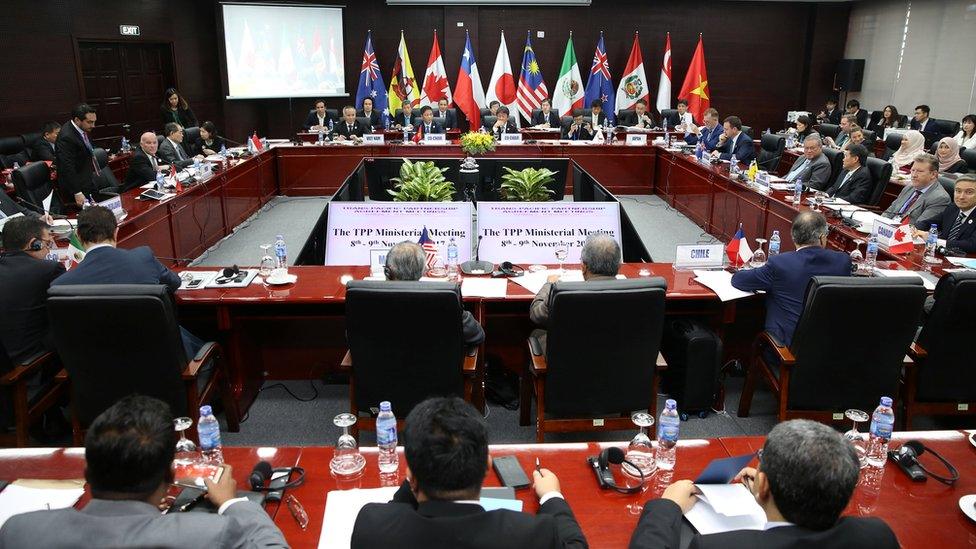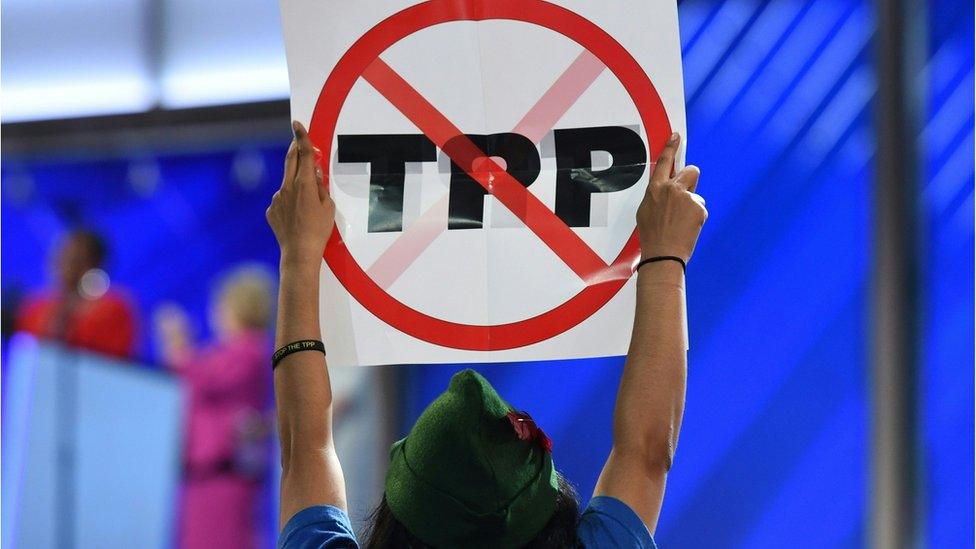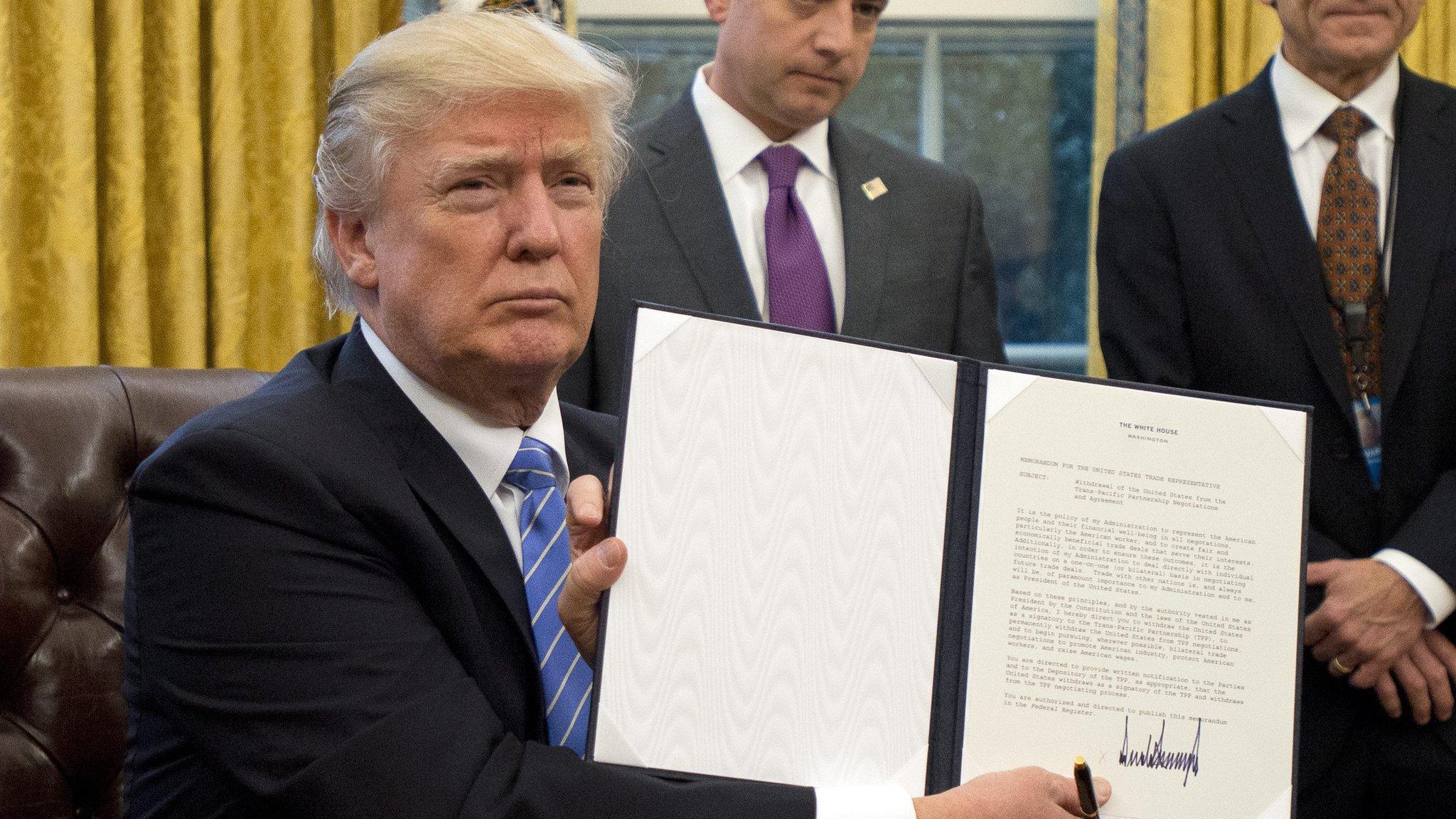TPP trade deal talks move forward despite Canada wobble
- Published

The meeting was held during the Apec summit in Da Nang, Vietnam
Members of the Trans-Pacific Partnership have agreed a new framework to revive the proposed trade deal, following the US withdrawal earlier this year.
Meeting on the sidelines of the Apec summit in Vietnam, the remaining eleven nations released a joint statement saying they were committed to free and open trade.
Canada had been accused of stalling.
However its trade minister said good progress has now been made.
François-Philippe Champagne also denied that Prime Minister Justin Trudeau had deliberately skipped a leaders' meeting on the TPP on Friday and blamed his no-show on a scheduling mix-up.
"There was never an intention not to show up at any meeting," he said.
Mr Trudeau said earlier in the week that Canada would not be rushed into a renewed TPP deal.
The country's delegation said labour and environmental rights would be crucial pillars of a new agreement, but added that a lot of work still needs to be done.
Canadian officials said Canada was not the only country that wanted more time to work through the agreement.
The other countries working towards an agreement are Australia, Chile, New Zealand, Brunei, Singapore, Japan, Malaysia, Mexico, Peru and Vietnam.
President Donald Trump withdrew the US from the original 12-nation TPP agreement in January.
The bid to revive the TPP, which would have covered 40% of the global economy, was led by trade ministers from Japan, Australia and New Zealand.

Moving on without Trump
By Jonathan Head, BBC South-East Asia correspondent
When President Trump abandoned the TPP it was widely expected that the deal would collapse.
It had originally been championed by President Obama, partly as a way of maintaining US influence in the Asia-Pacific region, and the US economy was bigger than that all of the other members combined.
The remaining countries are now having to renegotiate the terms of the deal, as access to the huge US market was the prize that persuaded less developed countries, including Vietnam and Peru, to sign up to tough conditions on issues such as labour rights and protection of intellectual property.
Canada remains concerned that commitments made could affect any renegotiation of the huge North American Free Trade Agreement, which may be needed if President Trump keeps up his threats to pull out of that deal as well.
But the 11 TPP members now say they have enough agreement on what they call the core elements of the trade pact to move ahead, although it is still not clear when it will be finalised.
- Published21 May 2017

- Published24 January 2017
